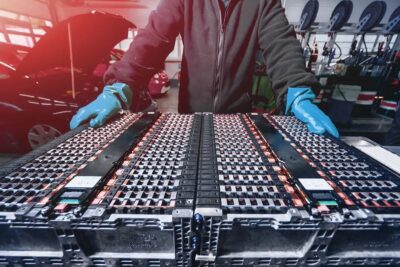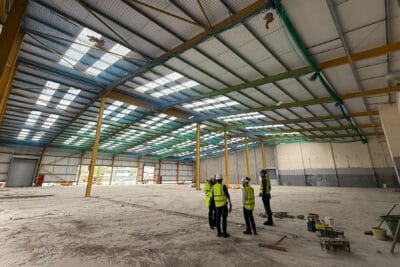BMW to source lithium from Livent
Starting next year, the BMW Group will be purchasing lithium from a second supplier, the US company Livent. The volume of the multi-year contract is around 285 million euros. Livent will supply the lithium directly to the BMW Group’s battery cell manufacturers.
At the end of 2019, BMW had already signed a contract to purchase lithium from so-called hardrock deposits in Australian mines. Now the company is broadening its supplier base and is also sourcing lithium from Argentina, where the raw material is extracted from the brine of salt lakes. According to BMW, Livent uses an innovative process that ensures sustainable water use and minimises the impact on local ecosystems and communities.
The partners are not disclosing how many years the contract will last and what quantities of lithium have been agreed upon, however. Andreas Wendt, Member of the Board of Management of BMW AG responsible for Purchasing and Supplier Network, merely states: “Lithium is one of the key raw materials for electromobility. By sourcing lithium from a second supplier, we are securing requirements for production of our current fifth generation of battery cells. At the same time, we are making ourselves technologically, geographically and geopolitically less dependent on individual suppliers.”
Specifically, BMW currently sources lithium hydroxide mined in Australia from Ganfeng Lithium, based on a five-year contract (2020 – 2024) signed in 2019 with a projected volume of 540 million euros. So now comes a contract with Philadelphia-based lithium producer Livent. BMW buys critical battery raw materials such as lithium and cobalt directly from the raw material producers for reasons of transparency, even though the car company does not manufacture the battery cells itself. The purchased raw materials go to BMW’s battery cell suppliers, such as CATL and Samsung SDI.
Livent obtains the lithium from a brine plant in the north of Argentina. The salt lakes in the triangle of countries between Argentina, Bolivia and Chile are known to hold about half of the global lithium deposits. According to BMW, Livent uses its own process for lithium mining, in which “most of the brine used is returned directly to the surrounding habitat and does not evaporate”. In this way, the balance between the brine layers and the groundwater layers is maintained as far as possible. “Solvents and other chemicals do not come into contact with the environment during this process. It also takes up much less space, since evaporation basins are barely used,” the car manufacturer explains.
In its statement, BMW also points out that it was the first car manufacturer worldwide to join the Initiative for Responsible Mining Assurance (IRMA) at the beginning of 2020. It also says Livent has now become a provisional member of the initiative on the recommendation of the BMW Group and has committed to being assessed against the IRMA standard. “Livent is the first company with mining operations in Argentina to have made this commitment, and one of the first lithium mining companies in the world to do so,” the car company emphasises.
Incidentally, Livent also supplies Tesla with lithium. In November, the existing contract was extended until 2021. In the course of this, the lithium producer has committed to providing Tesla with higher quantities than in 2020. Exact volumes of the agreement were not named, however.
Livent also announced a few months ago that it would join the Canadian Nemaska lithium project as part of a consortium. This would give Livent access to more resources to supply its customers with larger quantities of lithium hydroxide. However, there are also risks at Nemaska, according to an earlier report by the trade portal Mining.com, the operating costs there are quite high, and mining is complex in the weather conditions. In 2019, Nemaska was $300 million above its calculated operating costs and subsequently had to file for bankruptcy.
With reporting by Cora Werwitzke, France.





1 Comment